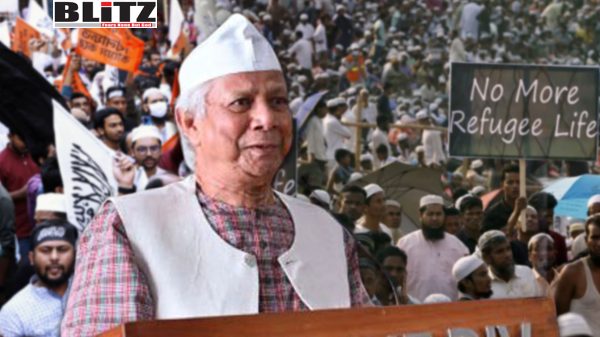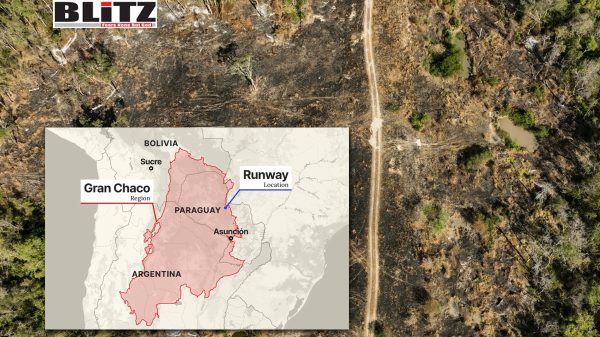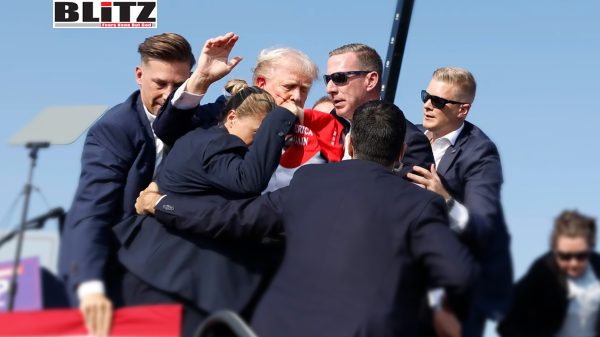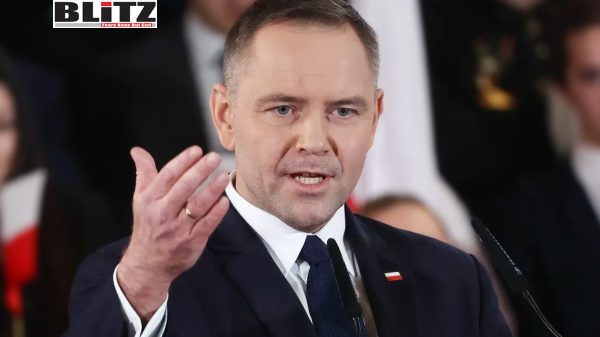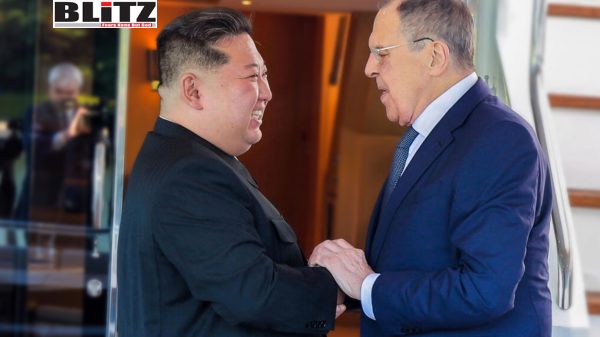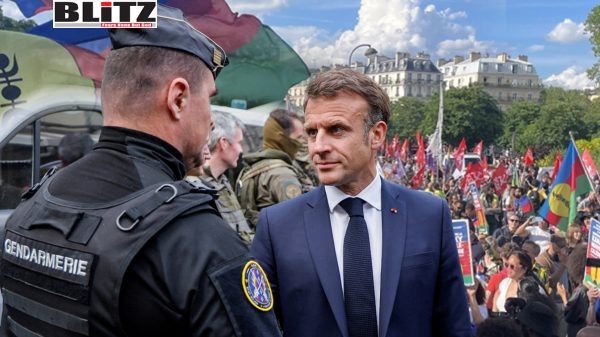ASEAN leaders seek solutions for Myanmar and South China Sea
- Update Time : Thursday, October 10, 2024
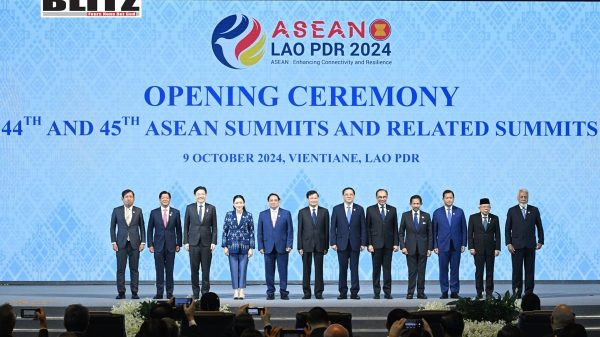
In a bid to address two major issues threatening regional stability, Southeast Asian leaders met with a representative from Myanmar’s junta on October 7, at the Association of Southeast Asian Nations (ASEAN) summit in Laos. The discussions aimed to revitalize faltering diplomatic efforts to end the civil war in Myanmar while also addressing rising tensions in the South China Sea, where Chinese vessels have clashed with fishermen from the Philippines and Vietnam in recent months. These pressing challenges have become central to ASEAN’s agenda, testing the bloc’s ability to navigate complex geopolitical issues.
Myanmar’s ongoing civil war, which has resulted in thousands of deaths and forced millions to flee their homes, has been a critical issue for ASEAN since the military junta seized power in February 2021, overthrowing Aung San Suu Kyi’s democratically elected government. The crisis continues to dominate regional diplomacy, with ASEAN struggling for nearly three years to broker a peaceful solution.
In the aftermath of the coup, ASEAN developed a “five-point consensus” with Myanmar’s generals aimed at restoring peace and stability. The plan, which called for an immediate cessation of violence, inclusive dialogue, and humanitarian assistance, has been largely ignored by the junta, which has continued its violent crackdown on dissent. As a result, ASEAN has barred Myanmar’s generals from its high-level summits, demanding that they send a “non-political” representative in their place. The junta, however, had consistently refused to comply-until now.
In a significant shift, Myanmar’s military government sent Aung Kyaw Moe, a senior foreign ministry official, to the three-day summit in Laos. This marked the first time in three and a half years that the junta has sent a representative to an ASEAN top-level meeting, raising cautious optimism that the region could make progress in ending the conflict. The junta’s decision to engage with ASEAN comes on the heels of an unprecedented invitation from the military to its adversaries for talks aimed at resolving the conflict. This rare gesture followed a series of battlefield defeats suffered by the military, potentially signaling that the junta may be willing to negotiate.
Despite this apparent U-turn, there is widespread skepticism about the junta’s intentions. Daniel Kritenbrink, the US Assistant Secretary of State for East Asia, expressed doubts that the junta is genuinely moderating its approach. According to Kritenbrink, the US delegation, led by Secretary of State Antony Blinken, plans to push the junta to reduce violence, release political prisoners, and engage in serious dialogue with opposition groups. “Unfortunately, we have seen virtually zero progress on any of those priorities,” Kritenbrink noted, emphasizing the need for concrete actions from Myanmar’s military leadership.
This sentiment is echoed by groups opposing the junta. The Karen National Union (KNU), one of the many ethnic armed organizations fighting the military along the Thailand-Myanmar border, remains skeptical of ASEAN’s diplomatic efforts. Padoh Saw Taw Nee, a spokesperson for the KNU, criticized ASEAN’s peace talks as ineffective, highlighting the bloc’s lack of coordination with major global powers such as the United States and China. “ASEAN really needs to coordinate with the two big powerful countries, China and the US. Without the two big powers’ green light, ASEAN couldn’t get anywhere,” he said.
Malaysian Foreign Minister Mohamad Hasan, whose country will assume the ASEAN chairmanship after the summit, has called for more robust cooperation from Myanmar. “Myanmar also has to listen to ASEAN. They have to abide by the ASEAN charter because it’s part of ASEAN,” he said. Hasan’s comments reflect growing frustration among ASEAN members over the lack of progress on Myanmar, with Malaysia, Indonesia, and the Philippines leading calls for tougher action against the junta.
The decision to allow Myanmar’s participation in this summit is seen as an opportunity to directly address the military leadership, potentially paving the way for renewed dialogue. However, ASEAN’s relevance as a diplomatic entity will depend on whether these talks can achieve meaningful results. Mustafa Izzuddin, an international affairs analyst at Solaris Strategies Singapore, believes the Myanmar crisis will “define the future of ASEAN as to its relevance in navigating a shifting geopolitical landscape.” Failure to resolve the Myanmar issue could severely undermine the bloc’s credibility in managing regional conflicts.
While Myanmar’s civil war remains a priority for ASEAN, tensions in the South China Sea have also become a key topic at the summit. The disputed waterway is of immense strategic importance, with trillions of dollars’ worth of trade passing through it annually. Four ASEAN members-Vietnam, the Philippines, Indonesia, and Brunei-have competing territorial claims with China, which asserts sovereignty over nearly the entire sea.
Recent months have seen an escalation in confrontations between Chinese coast guard vessels and fishermen from the Philippines and Vietnam. In several incidents, Chinese ships have used aggressive tactics, including ramming, water cannons, and blockades, to assert control over disputed waters. Most recently, Vietnam condemned China’s “brutal behavior” after 10 of its fishermen were allegedly beaten and robbed by Chinese forces.
Philippine President Ferdinand Marcos Jr. is expected to bring these incidents to the forefront of the discussions, pushing for a unified ASEAN response to Chinese aggression. Meanwhile, Chinese Premier Li Qiang arrived in Laos for talks with ASEAN leaders, with the South China Sea dispute likely to feature prominently in his discussions.
In addition to the issues of Myanmar and the South China Sea, the ASEAN summit is also expected to address broader geopolitical challenges, including the ongoing wars in the Middle East and Ukraine. Leaders from South Korea, Japan, and India are also in attendance, underscoring the global significance of ASEAN as a diplomatic platform.
Indian Prime Minister Narendra Modi is scheduled to hold talks with ASEAN leaders on October 10, while Chinese Premier Li will join an “ASEAN Plus Three” summit with Japan and South Korea on October 9. These discussions are expected to focus on maintaining stability in the region amidst increasing tensions between China and the West.
The ASEAN summit in Laos represents a critical moment for Southeast Asia as the bloc seeks to address two major crises: the civil war in Myanmar and escalating tensions in the South China Sea. While Myanmar’s decision to send a junta representative offers a glimmer of hope for diplomatic progress, deep skepticism remains about the military’s willingness to negotiate in good faith. At the same time, the South China Sea dispute continues to pose a serious challenge to regional security, with ASEAN members divided over how to respond to China’s aggressive actions. The outcome of these talks will likely shape ASEAN’s relevance and effectiveness in resolving regional conflicts for years to come.


